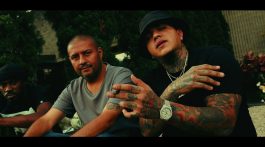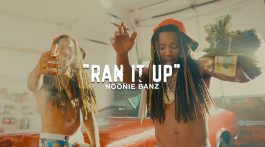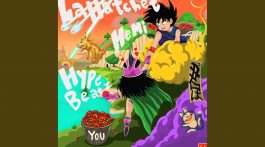In the summer of 2008, a photograph surfaced online that showed the Miami rapper Rick Ross, age 19, dressed as a corrections officer, at a corrections-department ceremony, shaking hands with the then-head of the South Florida Reception Center. Ross had released two gold-certified albums in which he cast himself as a fearsome former crime kingpin.
Born William Leonard Roberts, he’d taken his stage name from an actual drug trafficker, and he frequently referred to himself as “Boss.” He’d stuffed his hits, like the 2006 breakout single, “Hustlin’,” with boasts of crack-trade glory. The photograph threw his underworld résumé into question: Was it all a fabrication?
The rapper, now 35, initially denied it was him in the picture. Blaming Photoshop-savvy “online hackers,” he called the image a forgery, adding, “Fake pictures are created by the fake, meant to entertain the fake.” Unconvinced, the Smoking Gun dug up an old payroll record revealing that Ross had earned about $25,000 a year as a C.O. between December 1995 and June 1997. The Web site followed up on this scoop by posting excerpts from Ross’ 86-page Dept. of Corrections personnel file. Doubters were free to peruse Ross’ job application, filled out by hand, in which he listed the college he attended for a year (Albany State in Georgia), where, he wrote, he played football, studied Criminal Justice, and once volunteered to help Red Cross flood-relief efforts.
Under an “Experience” section, Ross noted that he’d worked one summer as a Big Brother through the Miami-Dade Parks and Recreation department, during which time he “exchanged thoughts and ideas with middle school boys and girls” and, as “a high-school All-American,” represented “a positive role model they could relate with.” In October 2008, Ross finally admitted the documents’ validity, stressing that this didn’t undermine his bona fides as an extremely negative role model. He stuck to his story.
“When I say that I’m rich off cocaine,” he told an interviewer after copping to the corrections job, “it’s because I did it.” Something puzzling happened in the face of this exposé—the hip-hop equivalent, one might have thought, of a James Frey moment. Ross’ rap-world prestige only grew. On his solo debut, from 2006, he had seemed something like the Stone Temple Pilots to Young Jeezy’s Pearl Jam: a likable-enough instrument of record-label market-cornering. Like Jeezy, Ross commanded a gritty drug-slinging persona and matched it with a blunt, unfussy rapping style—gruff voice, magisterial slowness, abundant repetition, minimal wordplay—that doubled as ostensible proof of his authenticity.
The absence of artfulness implied the absence of artifice. But whereas Jeezy had laid the groundwork for his major-label debut over several years with mixtapes and independent releases, building buzz from the ground up, Ross seemed to arrive from out of nowhere, and he was easy to dismiss as a one-hit sound-alike, rushed to airwaves to capitalize on the popular coke-rap trend. Advertisement On 2009’s Deeper Than Rap, however, Ross emerged, for the first time, as an artist worth taking seriously. Shrugging off the licit truths that had come to light the year before, he came into focus.
The album begins with a breathtaking exercise in bravado: the song “Mafia Music,” in which Ross, uninterrupted by a hook and accompanied by a choir and steamrolling organs, delivers 76 consecutive bars stocked with vivid turns of phrase (“trunk full of white, car smell like blue cheese”), autobiographical glimpses (“once had a job pouring tar up on the roof”), onomatopoeia (“woof!”), twisty, alliterative internal rhymes (“paper that I’m making got her taking photos naked … dodging debacles like potholes in Jamaica”), name-droppy self-mythologizing (“Martin had a dream, Bob got high/ I still do both but somehow I got by”) and, in sideways nods to the C.O. revelations, threats to harm both cops and 50 Cent, who’d begun snidely referring to Ross as Officer Ricky.
In 2010, Ross released Teflon Don, a fantastic album that doubled down on the tales of outsize, outlaw living. Drake and Busta Rhymes—more traditionally dazzling MCs than Ross—hailed it as the year’s best album. On one track, Ross sampled a Bobby Seale speech, audaciously linking his drug-dealing tales to a nobler history of struggle. Last year, Nas, as totemic a figure of classy, “golden age” rap as you’ll find, joined the appreciation society: “Rick is on fire,” he told BET. “Rick has got a strong grip on the game.”
A temptingly simple solution to the question of Ross’ skyrocketing stock, post-2008, is that great music can and will trump pettier concerns: Listeners were willing to pay no attention to that corrections officer behind the Maybach curtain because the curtain itself was so entrancingly, opulently embroidered. Indeed, opulence is key to Ross’ appeal. Making like the late-‘90s-era P. Diddy (who has shared several tracks with Ross and likened him to the Notorious B.I.G.), Ross fills videos with silk menswear and speedboat fleets. He favors beats, made by top-dollar producers like Kanye West, Justice L.E.A.G.U.E, and Lex Luger, that sound like the luxury objects they are—nowhere more so than on the aptly titled “Aston Martin Music,” in which synthesizers skip and shimmer over drums that land with a warm, full-bodied thwack. The refrain on Ross’ first hit was “Everyday I’m hustlin’,” but on the mic, for the most part, this Boss likes to put his feet up.
He’d rather let his immense charisma carry a song, intoning a set of catchy, blunt declaratives, than do much heavy lifting with his rhymes. (Two recent seizures that he suffered prompted concerns about his health, but he attributed them to being under-slept.) This isn’t to deny that he is a tremendously gifted MC: Anyone who doubts that Ross’ stripped-down rhyming is in fact a carefully cultivated technique can consult the sweatily acrobatic, double-time verse he delivered on Trina’s little-heard 2002 single “Told Y’All,” which, along with its accompanying video, offers a fascinating document of Ross before he’d honed in on the sort of rapper he wanted to be.
The luxe aura persists on Ross’ excellent new mixtape, Rich Forever, released last week. Consisting of all-new songs and featuring high-profile guests like Nas, John Legend, and Drake, Rich Forever is indistinguishable from a proper album. Ross is in top form, and never anything other than fun, whether he’s exacting revenge on a former doubter on “Holy Ghost” (“My teacher told me that I was a piece of shit/ Seen her the other day, driving a piece of shit”) or describing the unhygienic treatment of a firearm on “High Definition” (“Got the .40 by my dick, I keep pissing on the hammer”).
Rich Forever’s title encapsulates the central fantasy that Ross perpetuates, the allure of which is easy to parse in the context of his recession-coincident career boost: To an over-the-top, winningly grandiose degree, while other rappers have adjusted to leaner times, he carries on as though the ‘90s never ended, inviting listeners into an alternate timeline that’s all boom and no bust. In tough times, his stock and trade, more than any other MC, is wish fulfillment. But Ross’ success in the wake of the Officer Ricky scandal is more than a story of artistic improvement.
It also demonstrates that hip-hop audiences have changed their valuation of street credibility from the requisite it once seemed to be to something far more fluid. The rise of heart-on-sleeve rappers like Kanye West and Drake demonstrates this, too, but those MCs (both of them, not coincidentally, frequent collaborators with Ross) mount their assault from the outside, as it were—emotive barbarians banging down hip-hop’s steely gates with their feelings. Ross, by contrast, fully inhabits the time-hardened gangsta template, and detonates a bomb of theatricality from inside the castle walls. It is unclear if, as Ross assures interviewers, he was once a “hustler” in the sense that denotes a drug dealer. (Ross’ lawyer has denied his ties to the Carol City Cartel gang, though Ross regularly touts his affiliation in songs.) But he is certainly a hustler as the word figures into black folk culture, denoting a trickster.
Look more closely at the comparison to Young Jeezy—the anti-rapper rapper par excellence—and it begins to crumble. For one thing, Ross crafts his rhymes with far more care and showmanship; for another, he refers to his supposed criminal résumé with cartoonish overstatements you can’t imagine coming from the no-nonsense Jeezy, who flashes handguns in interviews and has documented ties to the Black Mafia Family crime syndicate.
Jeezy would never claim to “know” Pablo Escobar and Manuel Noriega, as Ross did, memorably, on “Hustlin’.” What ultimately makes Rick Ross a more interesting artist than a rapper like Jeezy is that he illustrates the fictiveness and wild fungibility of hip-hop identity precisely as he makes the case for his rock-hard authenticity. “I think I’m Big Meech; Larry Hoover,” Ross, naming gangster icons, barks over and over again on his thundering 2010 single “B.M.F. (Blowin’ Money Fast).” From that chorus to the Gotti-referencing Teflon Don down to his sobriquet (which prompted the actual Rick Ross to file an unsuccessful infringement suit against the rapper), Ross acts as though slipping into a kingpin’s
skin were as easy as taking his name and reading from his script.
The twist, however, is that in hip-hop—where the line between autobiography and fiction scrambles as in no other art form—it is that easy, provided you’re a convincing narrator. In this sense, the James Frey comparison breaks down as well. Rick Ross can call his music “true” all he likes: The slippery rules of his genre nullify any guarantee of memoir. Credibility is just another performance. There’s a pleasing consonance to the way Rick Ross’ persona-craft jells with the classic rap-narrative of up-by-the-bootstraps striving.
Rick Ross likes to call himself “self-made,” but while he means this in the sense of Alger-style ascent, it also works in the sense of Gatsby-style self-invention. This relates, more broadly, to the way many listeners daydream their own self-inventions when they listen to hip-hop—as ripe a source of vicarious fantasy as pop music offers.
When the Smoking Gun documents first broke, I wondered if Rick Ross might attempt to turn the scandal into a song: A narrative told from within prison walls, say, describing life among the inmates. But such a song would have dampened and disrupted the voyeurism that marks so much hip-hop fandom. Ross needed to remain a boss. He can wink at the contract, but he doesn’t dare break it outright.
By Jonah Weine slate.com










No Comment